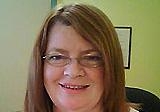Lift off
A program to encourage high school students into space-based research and study is among three UNSW projects to receive more than $9 million in Australian Space Research Program funding.
A program to encourage high school students into space-based research and study is among three UNSW projects to receive more than $9 million in Australian Space Research Program funding.

A program to encourage high school students into space-based study and research is among three UNSW projects to receive more than $9 million in Australian Space Research Program funding.
UNSW researchers were involved in three of the four projects funded in the first round of the Federal Government program, which aims to develop world-class space science projects.
A team led by Dr Carol Oliver from UNSW's Australian Centre for Astrobiology will receive close to $1 million to empower high school students to take up study and careers in space-related science and engineering.
As part of the project, a "living laboratory" capable of simulating real-life space scenarios, will be established at Sydney's Powerhouse Museum, offering 2,000 students the opportunity to participate in a remote sensing mission to Mars.
"The program is significant because it involves research as well as education," says Dr Oliver.
"We know very little about the long-term effects of such projects on the attitudes of young people and what is needed to successfully engage them in disciplines such as space research."
Other partners in the program are the Australian Centre for Field Robotics at the University of Sydney, and Cisco Systems Australia.
UNSW is also a consortium partner in a $5 million project to develop Australia's world-leading scramjet technology.
A scramjet (supersonic combustion ramjet) is an air-breathing combustion engine that can be combined with rockets to launch people and payloads into space in a more fuel efficient way.
A third consortium involving UNSW researchers won more than $3 million to develop advanced tracking, navigation, climate and atmospheric modelling for space-related research.
Innovation Minister Senator Kim Carr praised the winners, saying they had shown the ability to assemble the very best national and international teams and focus on key skills.
"Australia can be a serious player in the global space industry if we focus on niche areas that match our special capabilities," he said.
Media contact: Bob Beale | 0411 705 435 | bbeale@unsw.edu.au